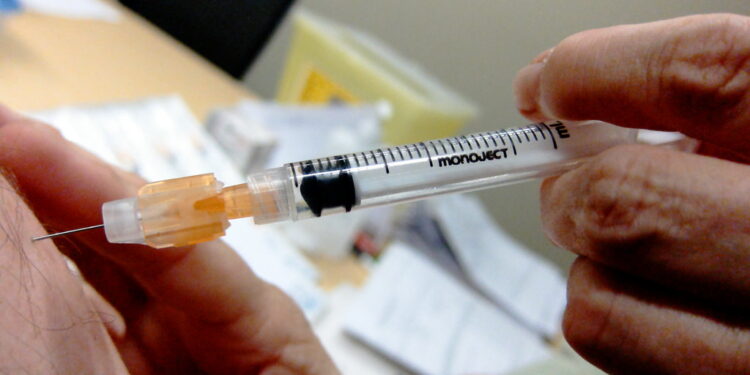Adjuvants are substances added to vaccines to enhance the immune response. They are designed to produce a high antibody response using the smallest amount of viral-containing solution possible. However, the definition of adjuvants as “pharmacologically active drugs” raises questions about their true nature. How can a substance be both pharmacologically active and inert with no activity or toxicity?
The use of adjuvants dates back to 1925 when French researcher G. Ramon discovered that adding certain substances to vaccines increased their efficacy. While the specific substances used by Ramon are no longer in use, adjuvants continue to be added to vaccines today. Adjuvants are classified into different chemical groups based on their mechanisms of action. However, despite more than 75 years of use, the mechanism of action for most adjuvants remains incompletely understood.
For an adjuvant to be effective, it must be combined with a carrier molecule. This combination, known as an adjuvant formula, triggers a complex immunological cascade in the body. The release of cytokines and activation of the immune response can have a disruptive effect on the normally organized immune system. The reaction that occurs after each vaccine is administered is unique to each individual, making it akin to a new experiment.
While adjuvants are intended to enhance the immune response, they also carry potential health risks. Some of these risks include local inflammation, immune suppression, anaphylaxis, systemic toxicity, autoimmune disorders, and genetic events such as carcinogenesis and birth defects. These risks highlight the need for further research and understanding of adjuvants' long-term effects.
Choosing adjuvants for use in humans has been challenging, as toxicity levels observed in animal models do not always accurately predict safety in humans. This lack of predictability means that the absolute safety of vaccines containing adjuvants cannot be guaranteed. The currently licensed adjuvants in North America are aluminum compounds, which have been in use since the 1920s. However, one adjuvant called MF-59, primarily composed of squalene, was approved for use in 1992.
Squalene, a naturally occurring compound found in foods and supplements, was initially considered a safer alternative to other adjuvants. However, research has shown that injected squalene can lead to self-destructive immune responses, such as autoimmune arthritis and lupus. The molecular mimicry concept explains how antibodies created against squalene in an adjuvant can cross-react with the body's own squalene on the surface of human cells, leading to debilitating autoimmune and central nervous system diseases.
Another concern regarding MF-59 is its component called Tween80 (polysorbate 80), which has been found to cause anaphylaxis. MF-59 is known to activate the immune system significantly, but the long-term effects of this activation remain unknown. Vaccine clinical trials primarily focus on short-term reactions and antibody responses, without considering potential long-term autoimmune reactions that may take months to develop.
Despite these known risks, MF-59 was licensed for use in Fluad, a flu vaccine. The vaccine was deemed safe and effective by investigators, but the study's limited scope raises concerns. The trial only involved elderly individuals in nursing homes, making it difficult to attribute any adverse effects to the vaccine in the general population.
The lack of comprehensive testing for MF-59 and its potential side effects is alarming. The association of this adjuvant with the anthrax vaccine used in the Gulf War has raised further concerns about its safety. Matsumoto's book, Vaccine A: The Covert Government Experiment That's Killing Our Soldiers and Why GIs Are Only The First Victims, highlights the potential dangers of MF-59 and similar adjuvants used in vaccines for mass immunization.
In conclusion, the use of adjuvants in vaccines raises important questions about their safety and long-term effects. While they aim to enhance immune responses, adjuvants carry potential health risks, including autoimmune disorders and systemic toxicity. The approval and use of adjuvants like MF-59 without comprehensive testing and understanding of their mechanisms of action pose a grave concern for public health. It is crucial that further research is conducted to ensure the safety and efficacy of vaccines containing adjuvants.







